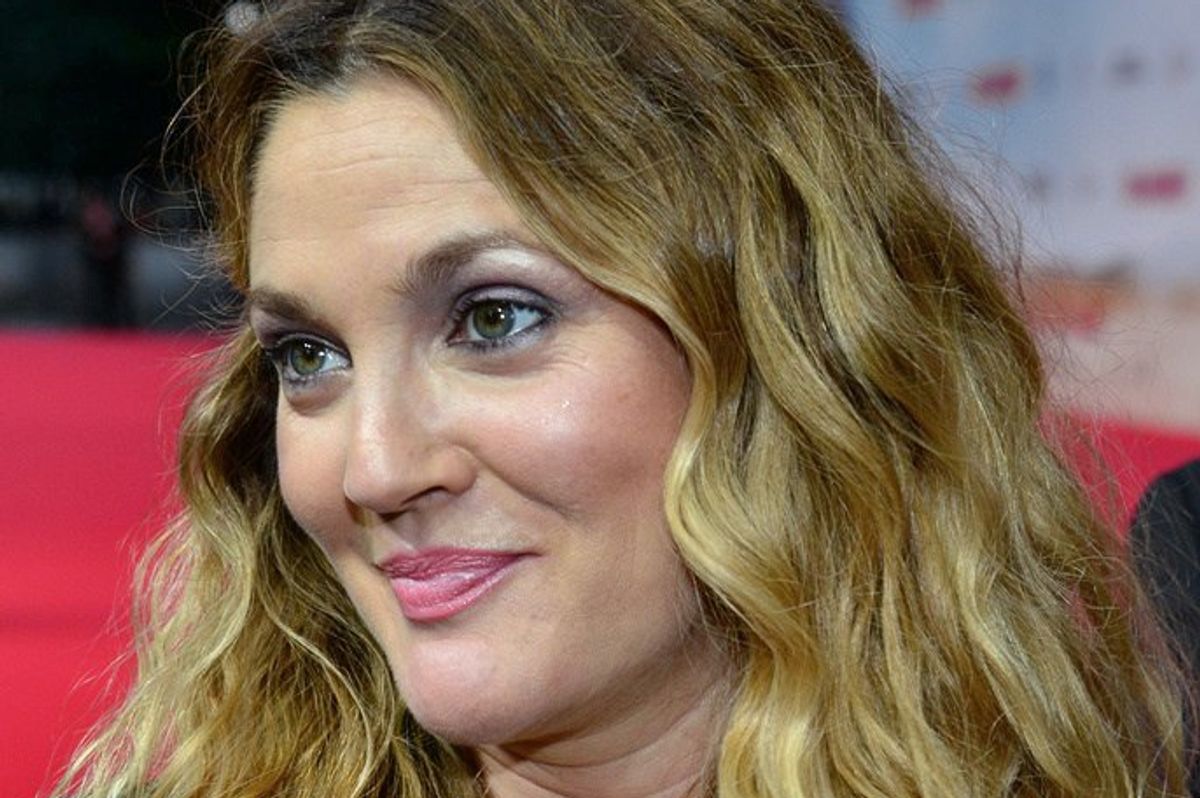
Drew Barrymore’s signature brand of empathy has come into question for the 11,000 members of the Writer’s Guild of America currently striking after she resumed production for her talk show.
Both the Writer’s Guild and the Screen Actor Guild, otherwise known as SAG-Aftra, have yet to reach fair negotiations with major studios and streaming companies like Disney and Netflix, and because of that, productions have come to a halt. And productions that continue to work while struck (with a few specific exceptions) are considering violating the strike rules, aka “crossing the line.”
And yet, Barrymore doubled down on her decision, writing on Instagram that she previously “made a choice to walk away from the MTV, film and television awards because I was the host and it had a direct conflict with what the strike was dealing with which was studios, streamers, film, and television.”
“To be clear, our talk show actually wrapped on April 20th so we never had to shut down the show,” she continued. “However, I am also making the choice to come back for the first time in this strike for our show, that may have my name on it but this is bigger than just me.”
In her statement, Barrymore argued that “we are in compliance with not discussing or promoting film and television that is struck of any kind. We launched live in a global pandemic,” suggesting that she was within strike regulations.
Unfortunately, it’s a little more complicated than that. Luckily TV writer David Slack, who’s worked on shows like “Law & Order” and “Magnum P.I.” explained it all in a very concise thread on X, formerly known as Twitter.
In the thread, Slack explained that Barrymore’s show is technically covered under both unions—SAG and the WGA. So while, yes, under SAG’s current contract, as long as she doesn’t promote struck shows, there’s no violation…the same cannot be said for her show under its WGA contract.
By going back on the air without her writers, Drew Barrymore is 100% ensuring that *someone* — either herself, one of her non-writing producers, or all of the above — will be doing the writing work that WGA writers normally do.
— David Slack (@slack2thefuture) September 11, 2023
“While Drew Barrymore is not a WGA member, her show employs WGA writers who are currently out on strike,” he wrote, noting that they create those popular “opening monologues, jokes, and interviews” that seem so spontaneous.
By going back on the air without her writers, Drew Barrymore is 100% ensuring that *someone* — either herself, one of her non-writing producers, or all of the above — will be doing the writing work that WGA writers normally do.
In other words…the decision is “absolutely” violating the WGA’s strike rules, according to Slack.
It’s hard to tell if Barrymore’s choice to continue prediction is a result of misinformation (it’s near impossible to be 100% literate for just one of the two unions, let alone both) or if this is intentional for some reason. Either way, it certainly has ruffled feathers.
And it’s hard to not wonder if there was a better way to go about resuming production in a way that actually does support the writers.
By comparison, during the 2007 Writers Strike, which lasted 100 days, Conan O’Brien also continued to host his show. However, O’Brien used each episode to highlight how necessary writers with absolutely absurd and mundane shenanigans, like the lackadaisical tribute to his facial hair, and the ever famous attempt at spinning his wedding ring for 47 seconds.
This is true. Here’s Conan spinning his wedding ring during the 2007 writers’ strike just to fill airtime. It was like this for months.
NBC was lucky that Conan is the GOAT, but it’s impossible to explain to Gen Z how bad the content will get if there’s another one. https://t.co/tNkduyiNac pic.twitter.com/5Eo1WqQG0l
— Ben Collins (@oneunderscore__) May 2, 2023
Of course, as Slack pointed out, even that wouldn’t fly under the current contract. Hence why Barrymore’s show will be having picketers outside until the foreseeable future.
It almost goes without saying that it’s oversights like this—in addition to other sins—that have left the writers feeling the need to advocate for themselves. But it’s a big reminder that virtually anything you see on a television program that you enjoy, is because a writer provided you a service. And they deserve compensation for it.
